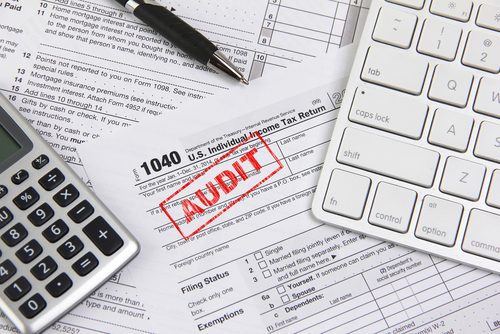Guide to IRS Tax Penalties: How to Avoid or Reduce Them

Tax season can be a stressful time for many individuals and businesses. One of the biggest fears is facing IRS tax penalties for mistakes or non-compliance. However, with proper knowledge and proactive steps, you can avoid or reduce these penalties. In this guide, we will explore different types of IRS tax penalties and strategies to minimize the risk of incurring them.
Understanding Different Types of IRS Tax Penalties
Before we delve into the strategies, it’s important to understand the different types of IRS tax penalties that can be imposed:
1. Failure to file: The IRS imposes penalties for not filing your tax return by the deadline. The penalty is generally calculated as a percentage of the unpaid tax amount. It can increase with time, up to a maximum of 25% of the unpaid tax.
2. Failure to pay: If you file your tax return but don’t pay the full amount owed, the IRS can impose a failure-to-pay penalty. This penalty is also calculated as a percentage of the unpaid tax and can increase over time. The maximum penalty is 25% of the unpaid tax.
3. Accuracy-related penalties: These penalties can be imposed if the IRS determines that your return contains significant errors, underreporting of income, negligence, or substantial understatement of tax. The penalty is generally 20% of the underpayment.
4. Late payment penalties: If you fail to pay your tax liability on time, the IRS can impose a late payment penalty. The penalty is generally 0.5% of the unpaid tax amount for each month of delay, up to a maximum of 25% of the unpaid tax.
Strategies to Avoid or Reduce IRS Tax Penalties
Now that we understand the different types of IRS tax penalties, let’s explore some strategies to avoid or reduce them:
1. File your tax return on time:
The easiest way to avoid failure-to-file and failure-to-pay penalties is to file your tax return on time. Make sure you are aware of the filing deadline and gather all necessary documentation well in advance. If you are unable to file on time, consider filing for an extension to avoid the failure-to-file penalty.
2. Pay your tax liability on time:
Even if you cannot pay the full amount owed, it’s essential to pay as much as you can on time. This will help minimize the failure-to-pay penalty. Consider setting up a payment plan with the IRS to avoid hefty penalties and interest.
3. Seek professional assistance:
Tax laws and regulations can be complex and constantly evolving. Enlisting the help of a qualified tax professional can help you navigate the tax code and reduce the risk of errors or underpayment. They can also provide guidance on deductions, credits, and strategies to minimize tax liability.
4. Take advantage of deductions and credits:
Make sure you are aware of all available deductions and credits that can help reduce your taxable income. Double-check your eligibility for commonly overlooked deductions, such as education expenses, medical expenses, or energy-efficient home improvements. Every dollar saved through deductions is a dollar less in potential penalties.
5. Maintain accurate and organized records:
Accurate record-keeping is crucial when it comes to taxes. Keep track of income, expenses, and supporting documents throughout the year. This will help ensure that you report all income correctly and claim eligible deductions without triggering accuracy-related penalties.
6. Consider safe harbors and reasonable cause exceptions:
The IRS provides certain safe harbors and reasonable cause exceptions that can help avoid penalties. For example, taxpayers who participate in the IRS’s voluntary disclosure programs for unreported foreign assets may be eligible for reduced penalties. Consult with a tax professional to determine if you qualify for any of these exceptions.
7. Respond to IRS notices promptly:
If you receive a notice or communication from the IRS, it’s important to respond promptly and address any issues raised. Ignoring or delaying action can lead to additional penalties and complications. Review the notice carefully and seek professional advice if necessary.
Summary
Remember, prevention is always better than cure when it comes to IRS tax penalties. By staying organized, seeking professional guidance, and fulfilling your tax obligations on time, you can minimize the risk of penalties and ensure a smoother tax season. Take charge of your tax planning, and don’t hesitate to seek professional assistance when needed.
Need Certified Public Accountants (CPA’s) in Torrance, CA?
At Account On Us, we are certified public accountants and have served the South Bay area for over 26 years. We also offer services in Plano, Texas. Previously known as Teshima & Co., We offer accounting, tax, consulting, and QuickBooks services. We are full-service accountants specializing in retirement planning, tax preparation, consulting, and so much more. For our complete list of services, call us or visit our website today!